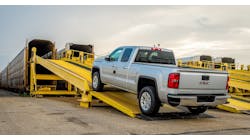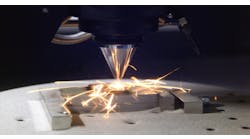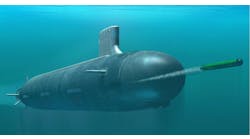General Motors Co. and Samsung SDI are pledging to build a new battery-cell manufacturing plant in the U.S., with a budget of more than $3 billion and a start-up date in 2026. No location has been identified by the joint-venture partners, who will operate the plant jointly.
It will be GM’s fourth joint-venture operation for battery cell production, the first three having been launched with partner LG Energy Solutions as Ultium Cells LLC. Samsung, like LG headquartered in South Korea, is a battery and electronic material manufacturer.
"GM's supply chain strategy for EVs is focused on scalability, resiliency, sustainability and cost-competitiveness. Our new relationship with Samsung SDI will help us achieve all these objectives," stated the automaker’s chairman and CEO Mary Barra. "The cells we will build together will help us scale our EV capacity in North America well beyond 1 million units annually."
The new plant will produce “nickel-rich prismatic and cylindrical cells,” in contrast to the nickel-cobalt-manganese-aluminum (NCMA) chemistry featured in the cells produced by the Ultium venture.
Some reports suggest the automaker is seeking an alternative to the Ultium Cells product, which has been blamed as the cause of multiple vehicle fires that led to GM recalling more than 140,000 Chevrolet Bolts, and cost close to $2 billion.
According to General Motors EVP-global product development Doug Parks, the Samsung SDI joint venture draw capital and technology from both partner companies. "We will continue to scale production and optimize the chemistry of our pouch cells for performance, range and cost using new approaches pioneered at GM's Wallace Battery Center and by our technology partners," Parks said. "The introduction of new cell form factors will allow us to expand into even more segments more quickly and integrate cells directly into battery packs to reduce weight, complexity and costs. With multiple strong cell partners, we can scale our EV business faster than we could going it alone."






